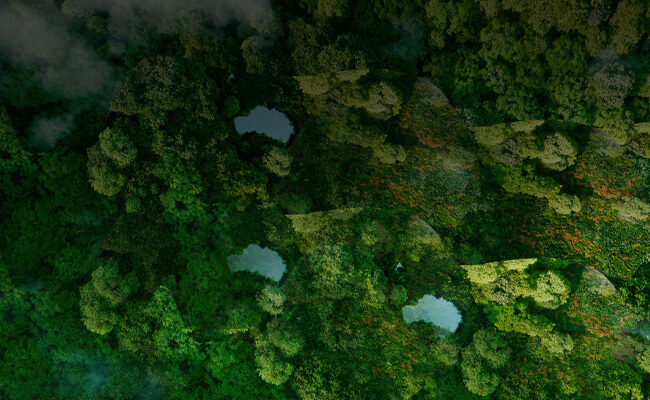Conference of Parties (COP29)





24 October 2017
The UAE, Republic of Korea and Italy pledge support to WGEO
WGEO launched the Public Sector Platform and announced the membership of the UAE, South Korea and Italy to the organization.
Sheikh Hamdan Bin Mohammad Al Maktoum honoured the representatives of the new member states: Silvia Velo, Undersecretary of State, Ministry for the Environment & Protection of Land and Sea (Italy), Sei-joong Kwon, Deputy Director-General of the Climate Change and Environmental Affairs Bureau, Korean Ministry of Foreign Affairs, (South Korea), and H.E. Dr Thani bin Ahmed Al Zeyoudi, Minister of Climate Change and Environment (UAE).
“The UAE has made great strides in the transition to a green economy based on an ambitious national vision, comprehensive strategic plans and an integrated program,” said Al Zeyoudi. “In the next phase, we will focus on implementing the initiatives of the national Green Agenda adopted by the UAE Cabinet in 2015 as a roadmap for achieving the Green Development Strategy. In addition, we will continue to work with our partners to develop and implement more projects to meet the objectives of the agenda within the established timeframe.”
Representing Italy, Velo said that its Ministry of Environment and Protection of Land & Sea has been at the forefront of implementing the UN’s 2030 Agenda for Sustainable Development.
She highlighted that the green economy has an important role in creating jobs and promoting investment, as well as restoring fair market conditions and achieving the inclusive transition the world needs.
“We have ambitious environmental and sustainable development goals – they are as ambitious as indispensable for us and our future generations. That’s why Italy is pleased to consider the invitation to join the WGEO as a founding member. We are also ready to work on a possible memorandum of bilateral cooperation in the field of climate change and environment,” said Velo.
On behalf of South Korea, Kwon said the WGEO’s newly launched Countries Platform will provide a solid foundation for the organization’s development.
“The Republic of Korea joined this wonderful journey last May and we are ready to closely cooperate with WGEO to promote the vision of green growth. Korea has achieved several milestones towards a green economy. In 2013, we set green growth as a key national agenda across all the national policies by implementing a five-year plan. Currently, we’re implementing the second five-year plan for green growth,” said Kwon.
Under the Paris Agreement, Korea submitted a 2030 target of reducing greenhouse gas emissions by 37% from business-as-usual levels. Moreover, as part of its efforts to build a sustainable energy system and promote creative industries, the country established the 2050 energy strategy which encourages households and businesses to make voluntary investments in the next generation of renewable energy, storage systems and electric automobiles.
“To galvanize Korea’s transition towards a clean energy system, we decided to reduce our dependency on coal and nuclear power generation. Korea will exert its utmost effort to increase its renewable energy generation to 20% of the country’s electricity by 2040,” said Kown.
He added that Korea was closely cooperating with like-minded partners in championing the vision of global green growth. For example, it has maintained the Green Growth Alliance with Denmark since 2012 and has played a leading role in establishing the Global Green Growth Institute (GGGI) in Seoul.
As host country and key member of the GGGI, Korea contributes $10 million to the institute annually and provides support for its operation. Moreover, the country hosts a green climate fund which is a major finance mechanism under the Paris Agreement for developing countries.
“There is no doubt the UAE has earned a reputation as a green growth hub in the Middle East with its vision and perspectives. Building on this, the UAE launched the WGEO with a view to expand its contribution to the green economy. The Republic of Korea greatly values this initiative. However, with light comes shadow,” Kown cautioned.
“One of the most challenging tasks will be to define the WGEO’s competitive advantage, which will differentiate it from other intergovernmental organisations. Korea has been there, we’ve overcome great difficulties in the process of developing the GGGI into an international organisation, and from this we learnt invaluable lessons. We stand to share our experience and cooperate closely with the UAE to help the WGEO to become an international organization with a unique business model and one that earns global recognition.
Meanwhile, H.E. Aziz Rabbah, Minister of Energy, Mining and Sustainable Development in Morocco, said that his country has voluntarily chosen a sustainable development path by ratifying the national strategy for sustainable development. In addition, the government has launched a USD 4.6-billion natural gas project and competition has already started between international companies. Such mega projects have attracted numerous partners, investors and innovators to the kingdom.
“The energy sector occupies an important place in Morocco’s economy. Our plan is to invest about USD 40 billion by 2030 to develop the energy sector – especially renewable energies such as solar, wind and hydro – so that we can generate 42% of our installed power capacity from renewables by 2020 and 52% by 2030” Rabbah said.
With the rapid developments in the green economy and energy sector, the challenge today, particularly for developing nations is how to choose the most suitable technologies and solutions, he added.
“We believe that climate change offers an opportunity. So instead of talking about ‘climate change’, let’s talk about ‘climate chance’, because it is an opportunity for developing countries to gain a prominent place in the modern economy, especially the green economy.”
© 2024 WGEO- World Green Economy Organization. All Rights Reserved.